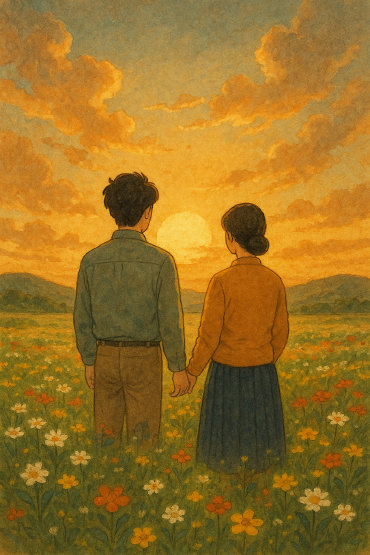The Song of the March for the Im, a Song of Memory and Hope
The meaning of the song for the ruler
The 'March for the Beloved' is not just a song. It is a spirit of the times, a pulse that beats the heart of our modern history's wounds, resistance, and hope. Born from the pain of Gwangju, it ignited as a flame of resistance and has become a living legacy that touches the hearts of new generations across the passage of time. We will take a look at the long journey of this song's birth, development, and its arrival here today, and listen to the questions its resonance throws at us.
Gwangju, a Song Bloomed in Despair
In May 1980, Gwangju was the first city to begin speaking out during an era that demanded silence. People cried out for truth even in the face of guns and swords, and their gaze and footsteps pointed in only one direction — towards 'democracy'. In the midst of this desperate outcry, "The Song for the Martyrs" was born. This song, created based on the lives and deaths of heroes Yun Sang-won and Park Gi-soon, transcended mere commemoration and represented the voices of all those who opposed oppression. Its melody carried the courage that surpassed fear, and its lyrics were imbued with a firm rejection of illegitimate power and a yearning for human dignity. Gwangju spoke through this song, illustrating how those who are forced into silence create sound and how that sound shakes the world.
Forbidden memories, an unextinguished ember
However, the power that feared this song being heard in the world thoroughly prohibited it. They prevented people from singing it and from being able to hear it. It was an era when a single song could be the reason for arrest. Nevertheless, people whispered this song, etched it in their hearts, and passed it down to their children. It was not just music. It was a belief, a 'memory' that humans could not give up. Memory preserved the song, and the song expanded the memory. This song, which resonated in the streets, classrooms, and on dining tables, ultimately formed a social solidarity and began to come alive again as a song that prepared for a new era beyond oppression.
The Voice of Resistance Spreading Across the World
The truth of Gwangju resonates not only within the country but also on the global stage of human rights movements. 'The March for the Beloved' is no longer a song of a particular region, but has established itself as a song of solidarity for all those who are oppressed. Various voices from around the world opposing dictatorship have been united through this song, proving that our history has never been an isolated struggle. This song has become a unique symbol of Korean democracy and a global anthem for the universal values of freedom and dignity.
Songs that are called again, consciousness awakening again
In 2016, this song was sung powerfully once again over a sea of candles. It was not merely an act of honoring the past. It was a declaration that a new generation was embracing the spirit of the past and finding courage in the face of current issues. Now, 'March for the Beloved' is positioned not as 'a song of the past,' but as a song of conviction that must be practiced 'here and now.' In front of the question, 'What do we march for?' we still stand on the road. The end of that road is not yet in sight, but as long as there is a song, we can walk without stopping.
5·18, a consciousness continued through song
Every year on May 18th, when this song resonates in Gwangju, we ask again. Have we not forgotten that day? No, are we living that day? The moment 'March for the Beloved' is heard, the spirits of the victims and that spirit come alive, prompting us to reflect on how we are inheriting that spirit in the present. It is not a ritual, but a ceremony that awakens the soul. Even in the silence of bowing heads, even in the tearful lyrics, this song makes us重新記住 the identity of the community and the promise of democracy across generations.
Song Calling for the Future
"The Song of the March for the Day of the Lord" is a song that grows stronger with the passage of time. With a spirit that stands against injustice, the power to uphold the truth, and the depth of solidarity, this song speaks to a new generation. "Complete this song with your voice." Thus, we sing. Not just to remember, but to practice beyond memory. It is the history we must uphold and the future we will create together. Through this song, we constantly question, revive, and reflect.
Conclusion
The 'March for the Beloved' has now transcended music to become a civilizational language. It is a declaration of rejecting oppression, a ritual of remembering pain, and a promise for a better world. We all confirm each other's existence through this song and share the possibility of changing the world. The power of the song ultimately comes from those who sing it. When those voices unite and resonate, we regain hope. The embers that have not extinguished throughout history still burn today, and those embers will become the starting point for another change alongside this song.

Post a Comment